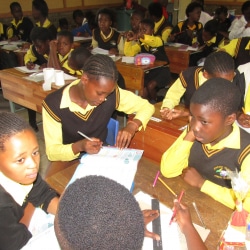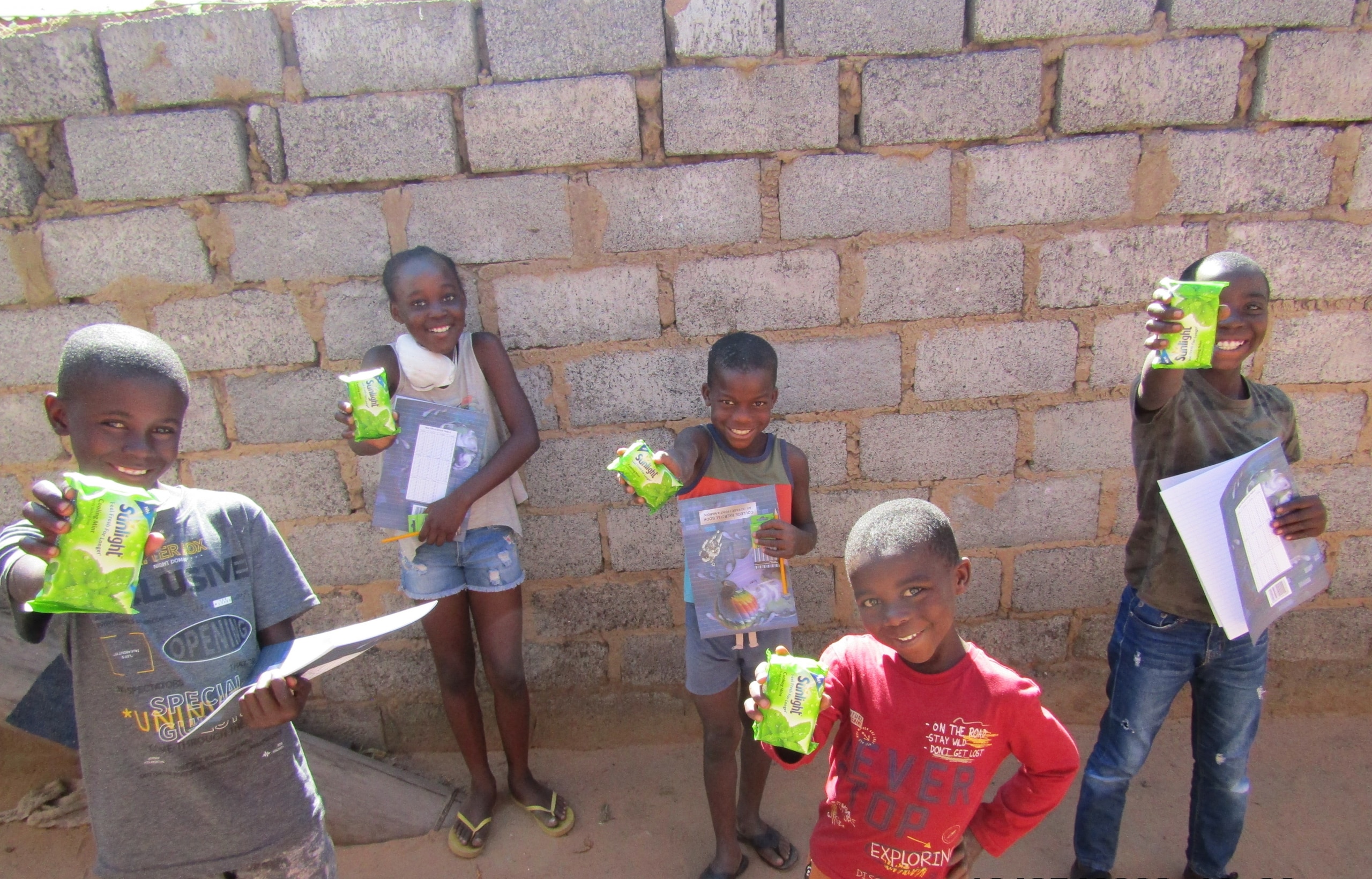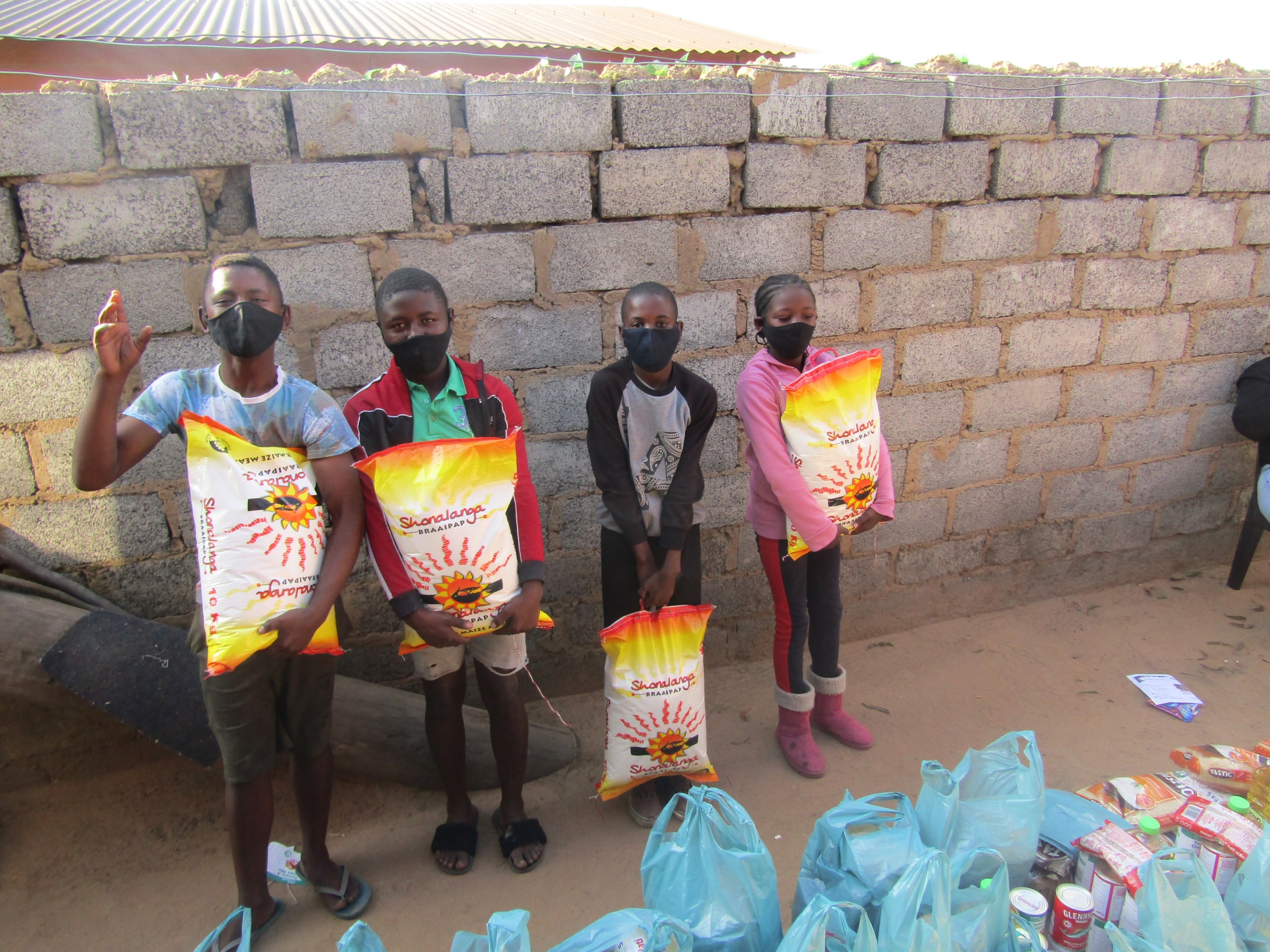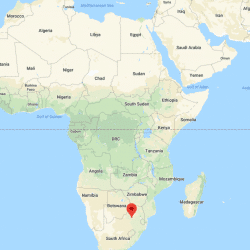
"Investing in education is the key to economic growth and development in South Africa"
Stevie Megens
Stevie Megens, Country Director of FXB South Africa, talks about what can be done to help children from disadvantaged backgrounds thrive in one of the world’s most unequal societies.
For more than twenty years, FXB has been running after-school support and life skills development programmes in various parts of South Africa, mostly in townships in Johannesburg, Nigel and Witbank, for vulnerable children living in extreme poverty.
Empowering destitute children in South Africa
“Our aim is to empower youth to overcome their fears, frustrations, protect them from all kinds of abuse and give them the tools to face life with confidence”, explains Stevie Megens, who has been with FXB South Africa since the very first day and has served as country director for the past twelve years. “We teach them to acknowledge who they truly are by respecting and honouring themselves as human beings, and by willing to make changes and take responsibility for the choices they make”.
In one of the world’s most unequal societies with a notoriously deficient education system, this is no small feat: academic support and self-development training; awareness programs on HIV/AIDS, drug and alcohol dependency, puberty, teen pregnancy, suicide prevention; nutritional support to destitute families; psycho-social support and counselling; provision of school uniforms and stationary… and the list goes on: FXB South Africa works at all levels to empower young children, and their families, for whom life has often been a never-ending, daily struggle.
“From inception to date, our FXB programs in South Africa have proved beyond doubt to have had a positive impact on our children’s educational outcomes, school attendance, social learning – and most importantly has helped close achievement gaps for our low-income students”, notes Stevie, who, before joining FXB, has worked for years in a nursery school and in NGO’s caring for and empowering vulnerable people living with HIV/Aids.
Leveraging education to combat inequalities
In order to tackle inequalities at its roots, FXB has not chosen the communities where it operates at random. “High rates of unemployment, crimes, violence, HIV/Aids as well as drug and alcohol abuse are widespread in the townships we work in”, Stevie comments, explaining how South Africa’s poor education system, particularly in the townships, only perpetuates long-standing inequalities – and only perpetuates the cycle of poverty for large parts of the population.

“That’s why investing in education and skills development is the key to economic growth and development in South Africa”, FXB’s country director argues. “We firmly believe that a more skilled, qualified and competent workforce should be employed to help under-performing schools and youth to maintain a high standard of education. This is key to having a positive impact on our underprivileged youth”. Many international studies lend weight to Stevie’s claim, pointing out that the country’s townships represent a major potential for sustainable growth and development that remains untapped to this day.
Helping FXB beneficiaries despite the COVID-19 lockdown
Then came the COVID-19 pandemic, which took a hard toll on the country. The fifth most affected country in the world at the peak of the epidemic, South Africa was forced to implement one of the world’s strictest lockdowns. And its low-income families, often living in precarious conditions and crowded townships lacking the most basic social services, were hit particularly hard.
“We had to interrupt our programs due to the extended lockdown period”, Stevie says, “and were unable to be in direct contact with our beneficiaries, many of whom rely on FXB’s services daily”.
“All these people needed our help, now more than ever: many guardians or parents lost their jobs and income, and lacked basic necessities and food to feed their children. The increase in the rise of domestic violence to pandemic proportions throughout the country also had a major negative impact on children and families alike”, Stevie adds. “Thankfully we were able to rise to these challenges and make sure our children were kept safe through our constant communication with our beneficiaries and their families”
On top of providing nutritional support to all the families, supporting the schools with surplus food and donations of personal sanitary equipment, “we introduced educational innovations to keep the children busy, entertained and safe at home, and stayed in contact with them by setting up 24/7 WhatsApp communication platforms in each of our after-school programs. We also provided our beneficiaries with fun work books which contained life skills lessons, stories, games, puzzles and art work during lockdown, which we delivered to their homes”.

Resilience in the face of adversity
Recounting the hardships impoverished South African families had to go through over these past few months is a near-impossible task: from the principals who discovered their schools had been vandalized and burgled, to children forced to stay in quarantine often from dysfunctional and abusive households; to township residents living with HIV, cancer and other life-threatening diseases who had to forego medical help, either by necessity or from fear of contracting the virus. This to name only a few heart-breaking accounts in a population that has already suffered so much.
But that’s not the takeaway Stevie wants to insist upon. “What struck us the most was the resilience shown by the families during lockdown. Parents exhibited such positivity and optimism, despite many of them having lost their jobs and their main concern being how they were going to feed their children”, she says. “They were always so incredibly welcoming, and so happy to take part in the various activities we supplied or asked the children to do, like playing games or reading stories and even filming their children reciting poems they wrote during lockdown or displaying the face-masks they had been challenged to make.”
“There are so many stories that touched our hearts. And seeing how grateful everyone was for the food parcels we distributed and psycho-social support we offered, as well as how we were able, despite all the struggles, to bring some comfort and relief into their homes, due to the unwavering support of our donors, this is really what keeps us going in times like this”, she says.
